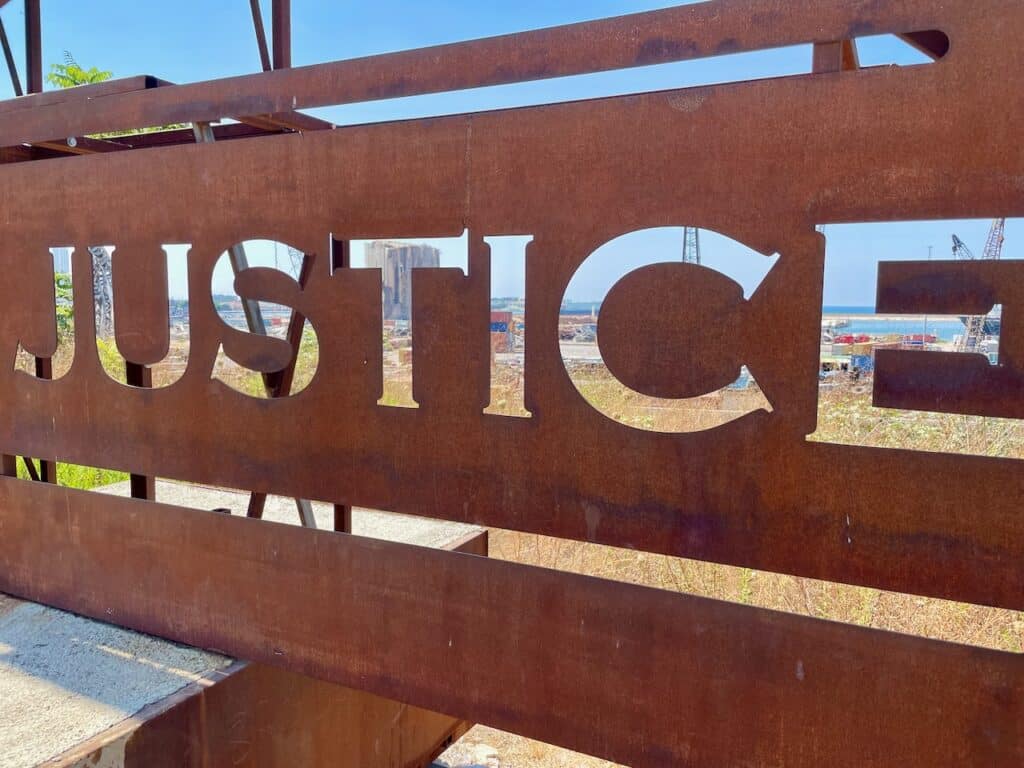His Eyes Are Upon Their Ways: Reflections Three Years After the Beirut Port Explosion
Written by Nishan Bakalian, serving in Lebanon with the Union of Armenian Evangelical Churches.
“From out of the city the dying groan,
And the soul of the wounded cries for help.” (Job. 24.12)
Lebanon is a wounded country. Although some may have the ability to accomodate to the layers of misfortune added each week or month, the majority continue to be crushed under the weight of a nonchalant and uncaring leadership. Though the people may smile and shrug their shoulders as they look for ways to meet basic needs, the pain of their wounds is the backdrop of each workday, each meeting, and each worship service.
The Armenian community in Lebanon (and the Middle East) shares in this sorrow and the debilitating effects of living with chronic social and economic pain. They hold their heads up as best they can, yet cannot but wonder how much more they can endure. Their fate is connected not just to local events and players, but even more to global politics and policies that few in the West will even notice.
When the capital city of Beirut was torn asunder on August 4, 2020, by possibly “the largest non-nuclear explosion in human history”, its residents had already been knocked to the ground because of the corruption and short-sightedness of its leadership “dynasty”, by the collapsed financial system, by the global pandemic, and by its young generation’s flight from its shores to more stable places in the world. Now, three years later, things have changed – but largely for the worse. Poverty and hunger have increased. What remains of a government is paralyzed, unable to elect a president to fill the nine-month vacuum. Public servants’ salaries cover about one day’s transportation to and from home. The decrepit power grid can only supply a few hours a day, while utility rates have multiplied. Trash is collected and dumped in open pits and seaside landfills. And similar to the utilities, public education has all but ended, with students and parents wondering whether the governmental exams will take place, or be graded, or be graded impartially.
A glance at Job’s lament for the corrupt world of his day (ch. 24) reveals a portrait strikingly similar to today’s Lebanon. It appears as if a hopeless picture, where even God remains indifferent, and not, as we expect, judging the heartless and self-centered who live a lifestyle that insulates them from the cry of the oppressed.
But it is the calling of the church to remind a hope-deprived people that though it appears to be a permanent state of affairs, their oppressors will enjoy their privileges only “a little while, and then are gone” (Job 24.24). God’s eyes see all that is happening, and he hears the cries of his own, and will answer them (Luke 18.7-8) at the right time. Today, then, the church’s focus must be upon growing in faith and serving with justice and mercy and divine love.
Praise be to God for those many loving hearts and hands around the world, including the United Church of Christ, the Christian Church (Disciples of Christ), as well as the Armenian Missionary Association of America, which enable the churches of the Union of the Armenian Evangelical Churches in the Near East to communicate this word of hope in Christ Jesus during these days. These churches gather children to learn and play during Vacation Bible School, adolescents and youth for Bible studies, sports and retreats, women for weekly fellowship meetings, and families for worship. Focusing not on the decay around them, but on the life they have in Christ, they prepare in faith to receive students in the Armenian Evangelical schools and Haigazian University in the fall.
God’s eye sees the actions of those who rebel against him and has prepared his judgment against them. But his eye is also on those who know the good and do it; He is their ever-present help. May we continually lift up our prayers and extend our hands to encourage them in Christ’s Name.
Nishan and Maria Bakalian serve with the Union of Armenian Evangelical Churches in Lebanon. Their appointments are made possible by gifts to the Disciples Mission Fund, Our Church’s Wider Mission, and your special gifts.
Make a gift that supports the work of Nishan and Maria Bakalian

